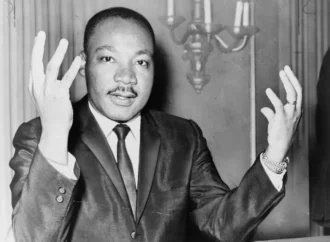When most people hear the word “secular,” they associate it with those who either don’t believe in God or don’t attend church and pray on a regular basis.
That’s one of the meanings of the term described by Charles Taylor in his monumental work A Secular Age:
“… secularity consists in the falling off of religious belief and practice, in people turning away from God, and no longer going to Church. In this sense, the countries of western Europe have mainly become secular—even those who retain the vestigial public references to God in public space.”
But there’s a second meaning of ‘secular’ also provided by Taylor:
“… we function within various spheres of activity—economic, political, cultural, educational, professional, recreational—the norms and principles we follow, the deliberations we engage in, generally don’t refer us to God or to any religious beliefs; the considerations we act on are internal to the ‘rationality’ of each sphere—maximum gain within the economy, the greatest benefit to the greatest number in the political area, and so on.”
Here Taylor explicates what I consider to be the most accurate understanding of secularism, namely, a compartmentalization of life in which one’s religious beliefs and outlook fail to inform all aspects of one’s existence.
In this sense, the term “secular” not only describes the contemporary culture, but is also appropriately applied to many Christians in the Western world today:
– They may say their prayers in the morning, but then they forget about God as their passions flare up while listening to morning talk radio about the latest thing done by Donald Trump or Nancy Pelosi.
– They may go to church every Sunday, but the rest of the week their main focus is on climbing the ladder at their jobs and how they can make higher salaries.
– They may faithfully contribute to their church’s donation basket, but then they also unreflectively spend gobs of money on “having fun” without a thought for the poor around them who suffer and grow in number.
According to C.S. Lewis, it was also appropriately applied to many Christians of the nineteenth century, which is popularly thought of as “more religious” than the present age:
“But if we judge the nineteenth century from the books it wrote, the outlook of our grandfathers (with a very few exceptions) was quite as secular as our own. The novels of Meredith, Trollope, and Thackeray are not written either by or for men who see this world as the vestibule of eternity, who regard pride as the greatest of the sins, who desire to be poor in spirit, and look for a supernatural salvation. Even more significant is the absence from Dickens’ Christmas Carol of any interest in the Incarnation. Mary, the Magi, and the Angels are replaced by ‘spirits’ of his own invention, and the animals present are not the ox and ass in the stable but the goose and turkey in the poulterer’s shop.”
The contrast to a secular Christian is one who engages in constant spiritual warfare, who seeks to free himself from his passions and to “be perfect,” who strives to love all and “pray unceasingly” (1 Thess 5:17), and whose Christianity is a litmus test for every activity in which he participates. The contrast to a secular Christian culture is one in which various spheres—education, government, the arts, law—provide constant reference points and reminders to men and women of their ultimate vocation.
All of the above sounds pretty “radical” to people these days. But if one goes back and reads the works of the Church Fathers in the early centuries of Christianity, or the descriptions of life in the Middle Ages, when Europe was a “universal visible spiritual community,” this understanding of Christianity was not regarded as “radical”. Rather, it was simply regarded as Christianity itself.
—
















Leave a Comment
Your email address will not be published. Required fields are marked with *